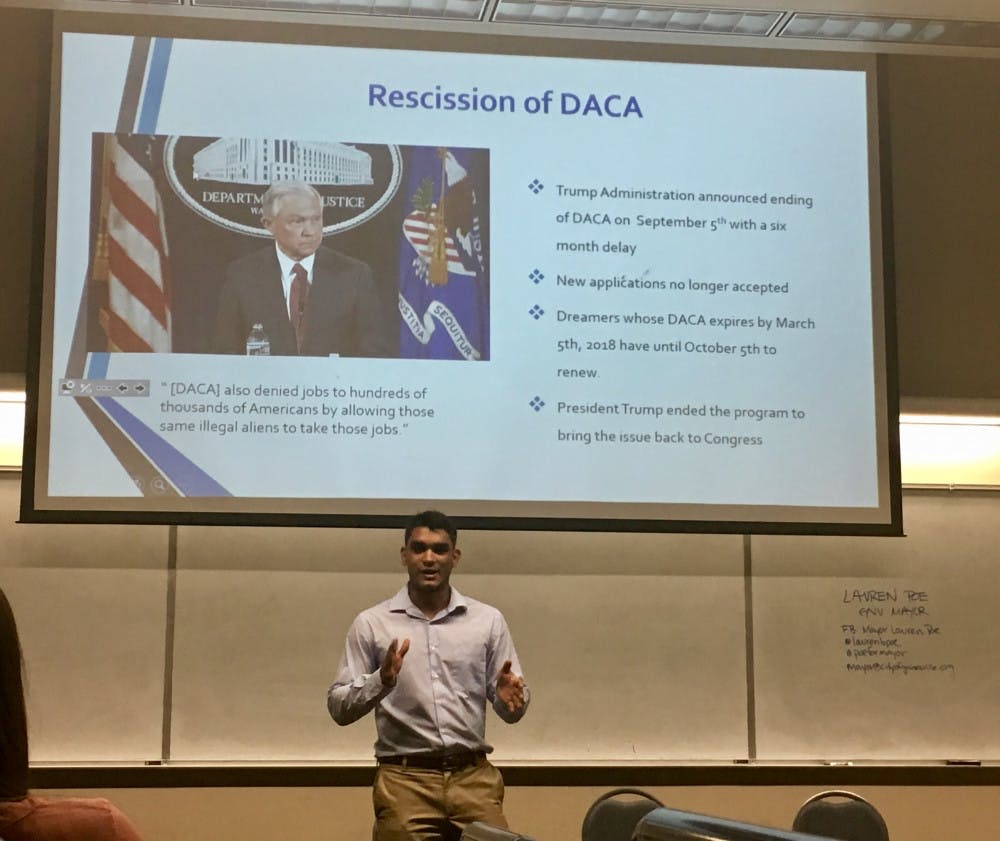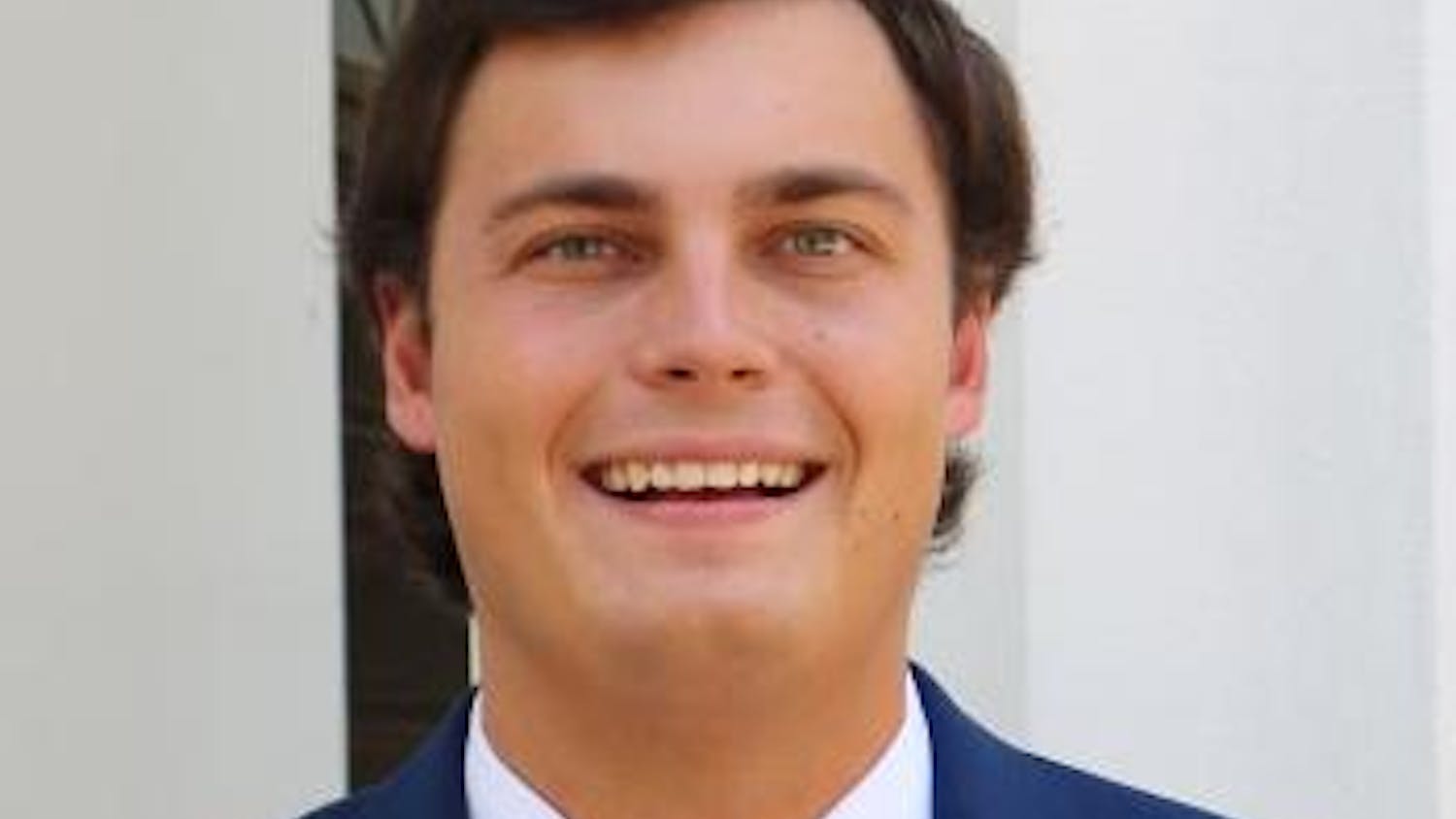As Giancarlo Tejeda, an undocumented student, addressed the crowd of 50, the room fell quiet.
“We have to go back under the shadows,” Tejeda, a UF biomedical engineering junior and DACA recipient, said.
Tuesday night, UF students held a forum, “Beyond Borders, Beyond DACA,” to raise awareness of President Donald Trump’s executive order to remove the Deferred Action for Childhood Arrivals program, which gives protection to undocumented immigrants brought to the U.S. as children.
With DACA removed, immigrants who were sustained by the program may become eligible for deportation as early as March, according to The New York Times.
Members of Theta Nu Xi Multicultural Sorority, Inc.; Lambda Theta Phi Latin Fraternity, Inc. and Chispas organized the discussion. Tejeda, 20, is the Vice President of External Affairs for Chispas, a student organization focused on the immigrant community.
Diana Moreno, assistant director of UF Multicultural and Diversity Affairs, presented on the panel.
“We cannot wait for the perfect bill to come around,” she said. “DACA was conditional. It could be taken away from you at any point.”
Moreno said Trump wasn’t the first President to target the Hispanic community.
“This is not a partisan issue,” Moreno said. “Both parties have been a culprit in either helping or worsening the situation.”
Paul Ortiz, associate professor of UF Department of History, said there has been a rise in resentment toward the Latino immigrant community since the early 1980s. Ortiz said their presence is seen as a negative impact on the economy.
“One myth about immigrants take our jobs,” Ortiz said. “That is just not true. The work done by those at the bottom opens up work for those at the top.”
DACA offered young adults amnesty if they were eligible under its strict qualifications. Recipients had to be in the U.S. by the age of 16 and must not provide a security threat. To get DACA, the applicant has to be either enrolled in school, holding a high school diploma or honorably discharged from the U.S. armed forces, Tejeda said.
Nicholas Vargas, UF assistant professor of sociology and Latin American studies, said the policy did not extend amnesty to the 11.3 million undocumented immigrants living within the U.S., including the parents of DACA students. Vargas said this divide creates mental health issues among DACA students.
“There is so much pressure that is placed on this portion of humanity,” Vargas said. “Their families depend on them for almost everything. What will it take to look at these people as multidimensional human beings?”
Giancarlo Tejeda, an undocumented UF student, presents information about the Deferred Action for Childhood Arrivals program.






